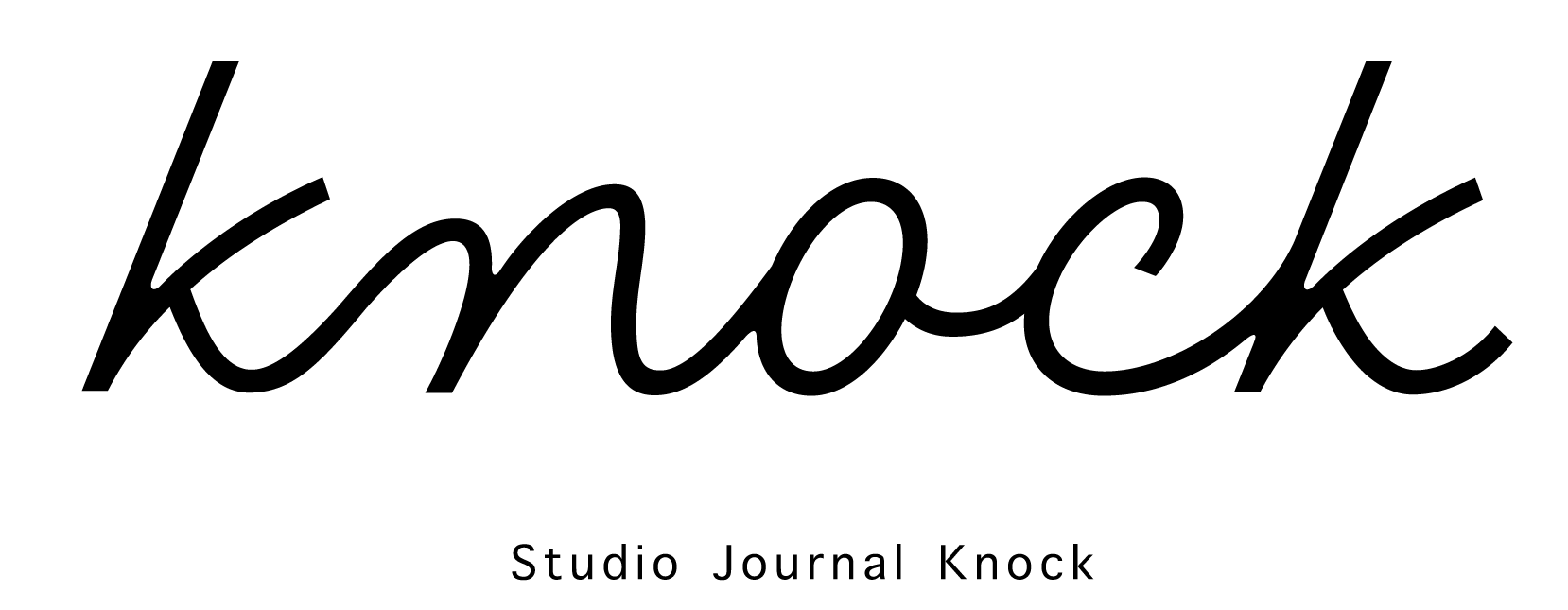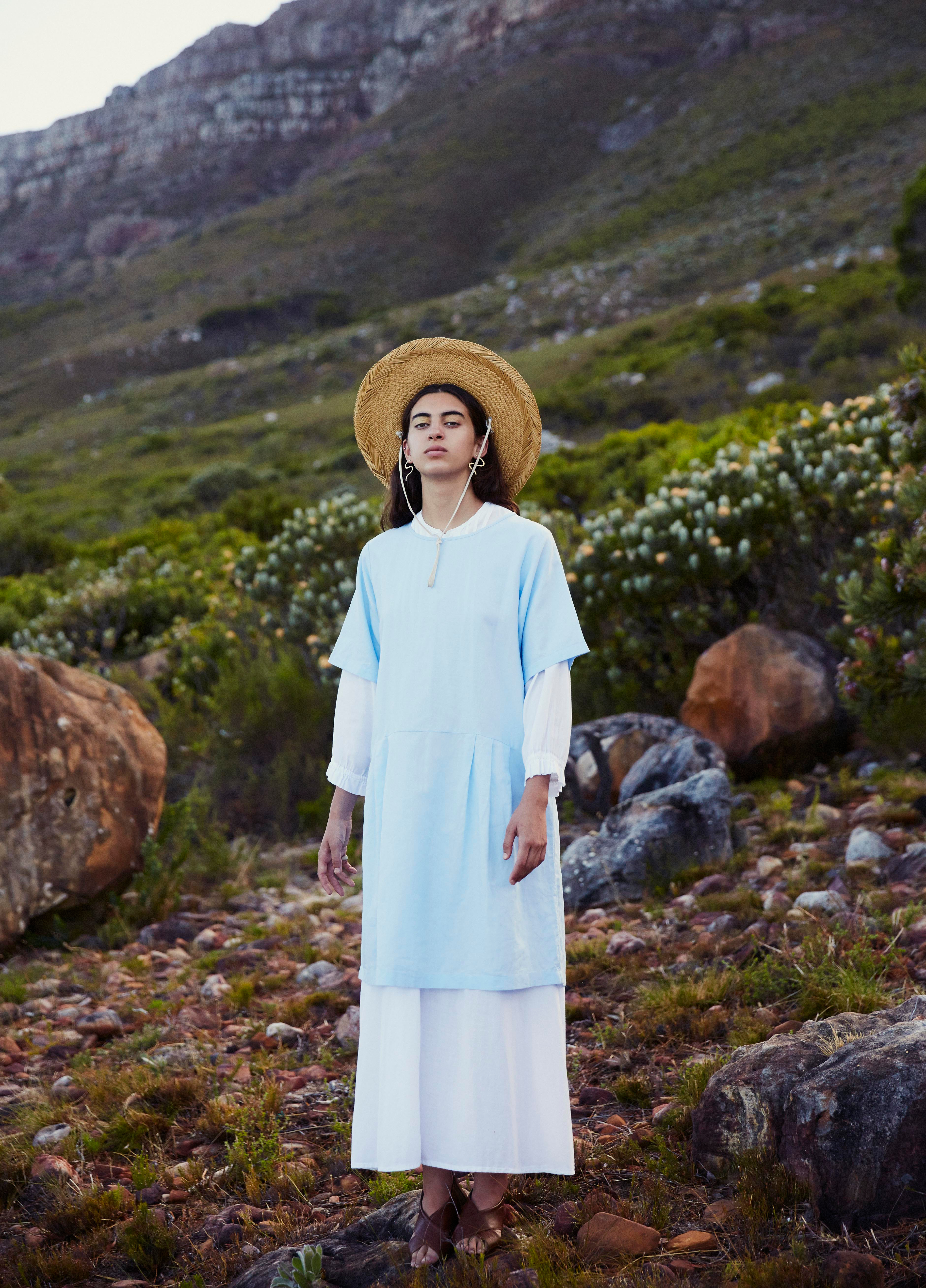“Skin Diver”
映像作家/カチャ・アベディアン
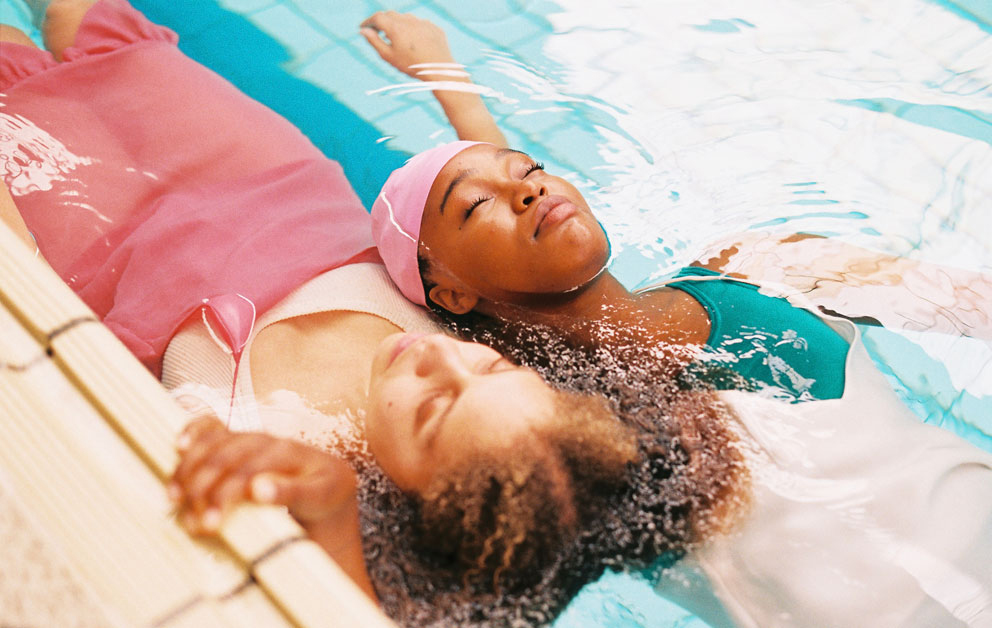
While Katya Abedian’s classmates were out celebrating the end of their high school careers in 2016, she was at home dreaming up a narrative rich with unapologetic diversity – and acceptance thereof. Now, just two years later, her cinematic dream-world has come to life. Skin Diver premiered at the Labia on the 6th of April, and stars dynamic femme-duo Tony Gum and Demi Van Der Westhuizen.
若干19歳のアーティスト、カチャ・アベディアン。彼女はこれまで彼女自身が出会う人たちが潜在的に持つ才能や可能性を見出し解き放つことへの強い興味を詩的な写真や文章で作品づくりを行ってきた。今回、その試みを映像によって表現した「スキン・ダイバー(Skin Diver/2018)」が話題になっている。自ら脚本、監督、プロデュースを行った彼女の処女作をまずは観てみたい。
Watch the official trailer:
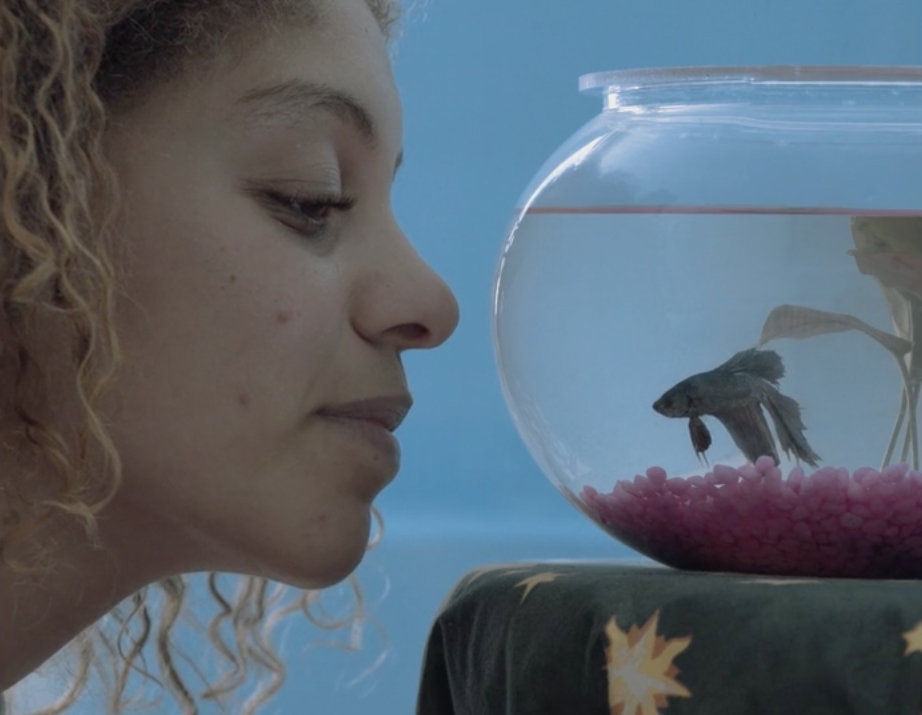
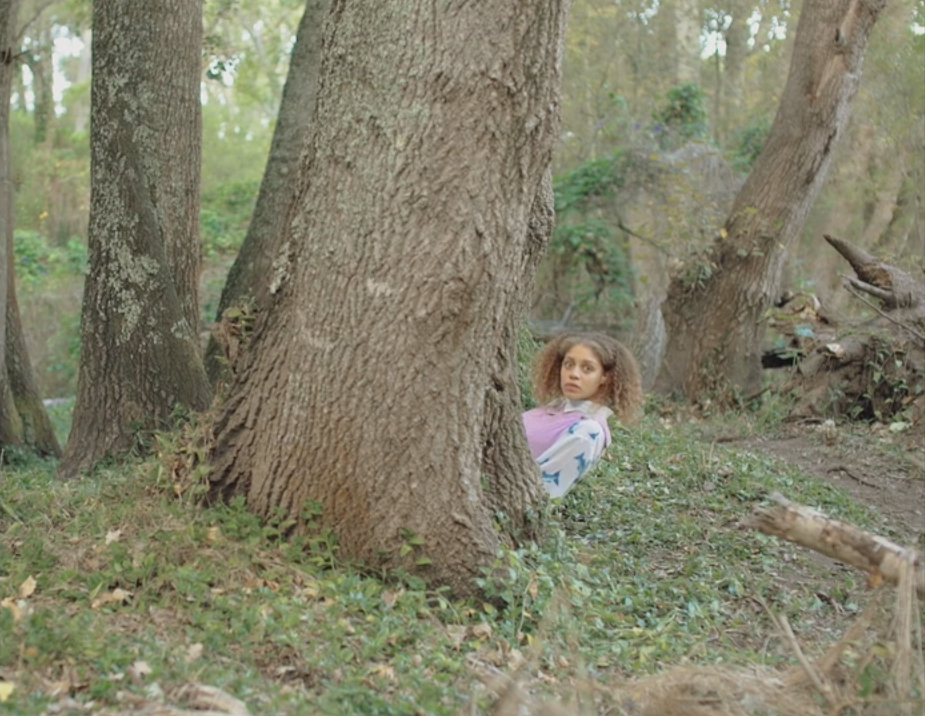
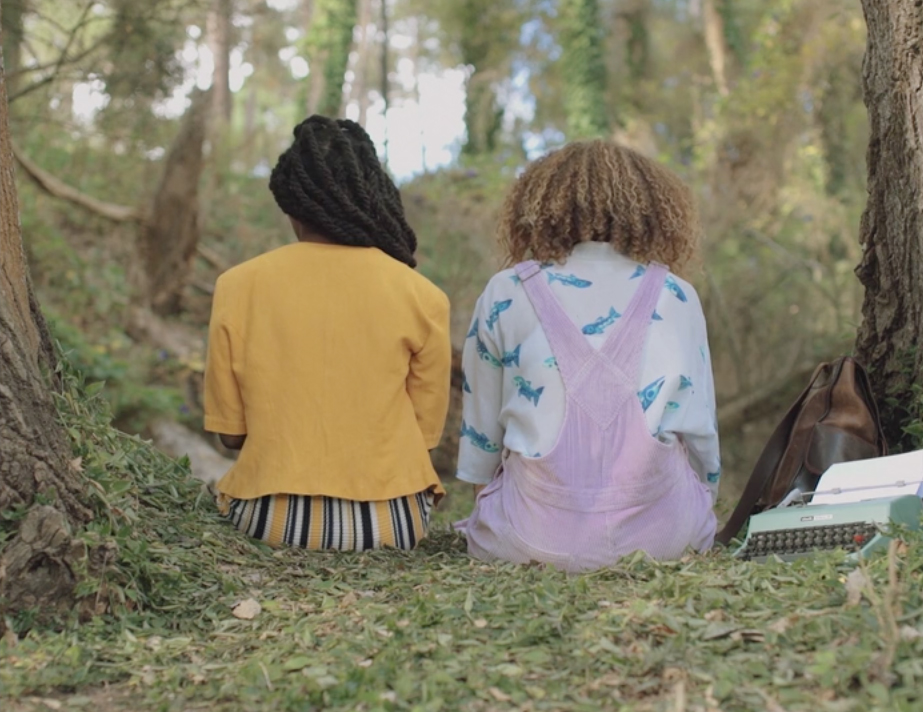
The narrative for Skin Diver comes from multiple sources of inspiration. One of most prevalent is the Bahá’í Faith: a religion that aims to teach the essential worth of all religions, and the unity and equality of all people. The film is based on the notion that we’re all the creators of our own realities, and that we should be able to choose which narratives we partake in – without shame or fear of others’ opinions. It’s all about seamlessly embracing your own journey, whatever that may be.
Katya is interested in telling stories about minorities – stories that feel like they are “missing” from the human narrative, or simply, being neglected. She says she feels inclined to tell stories from the Middle East and the African continent because, growing up in SA with Iranian family, it’s been stories from those places and people that sparked her desire to become a filmmaker.
Having said that, she’s careful not to be too prescriptive, and to keep her doors open by not setting limitations. As long as the work has gravitas and can meaningfully contribute to the advancement of human consciousness, she’s in.
Article via JAMESON Indie Channel
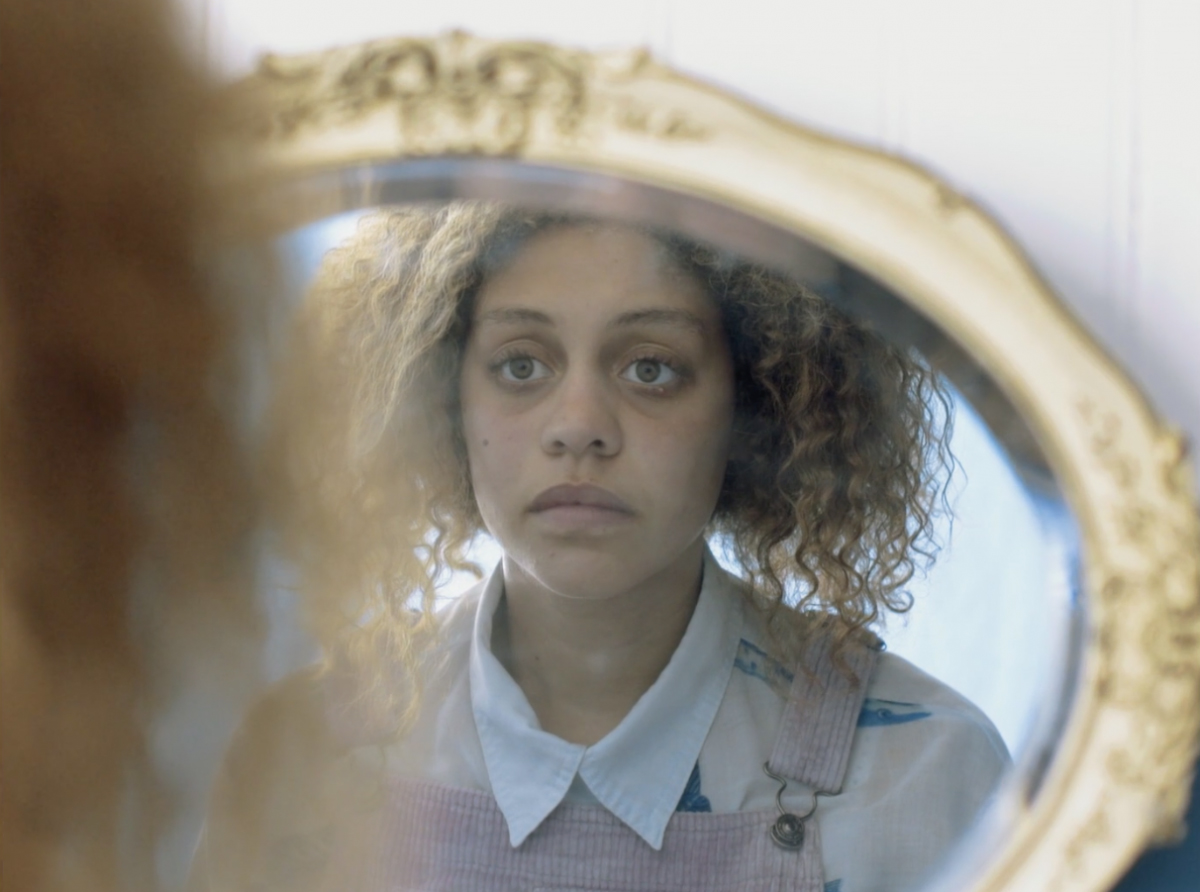
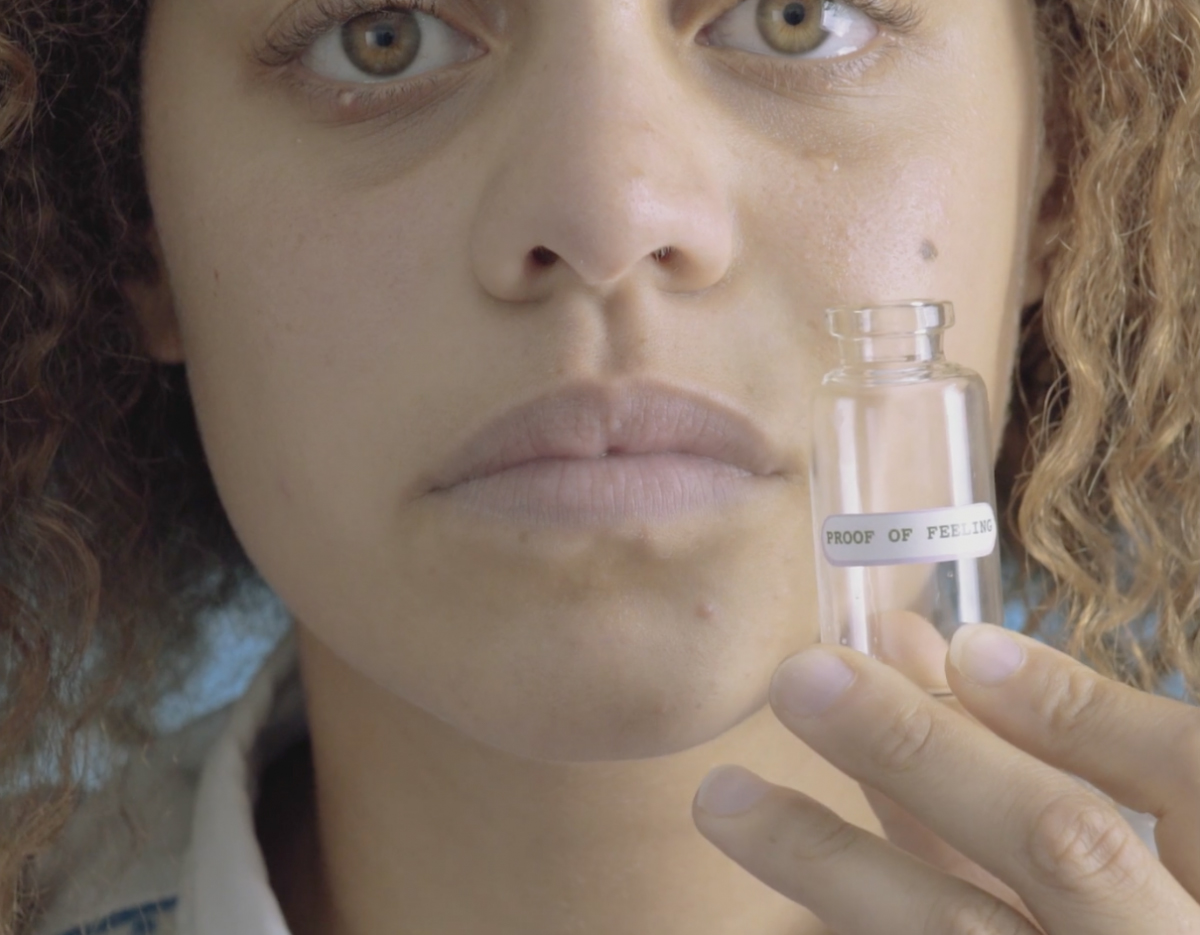
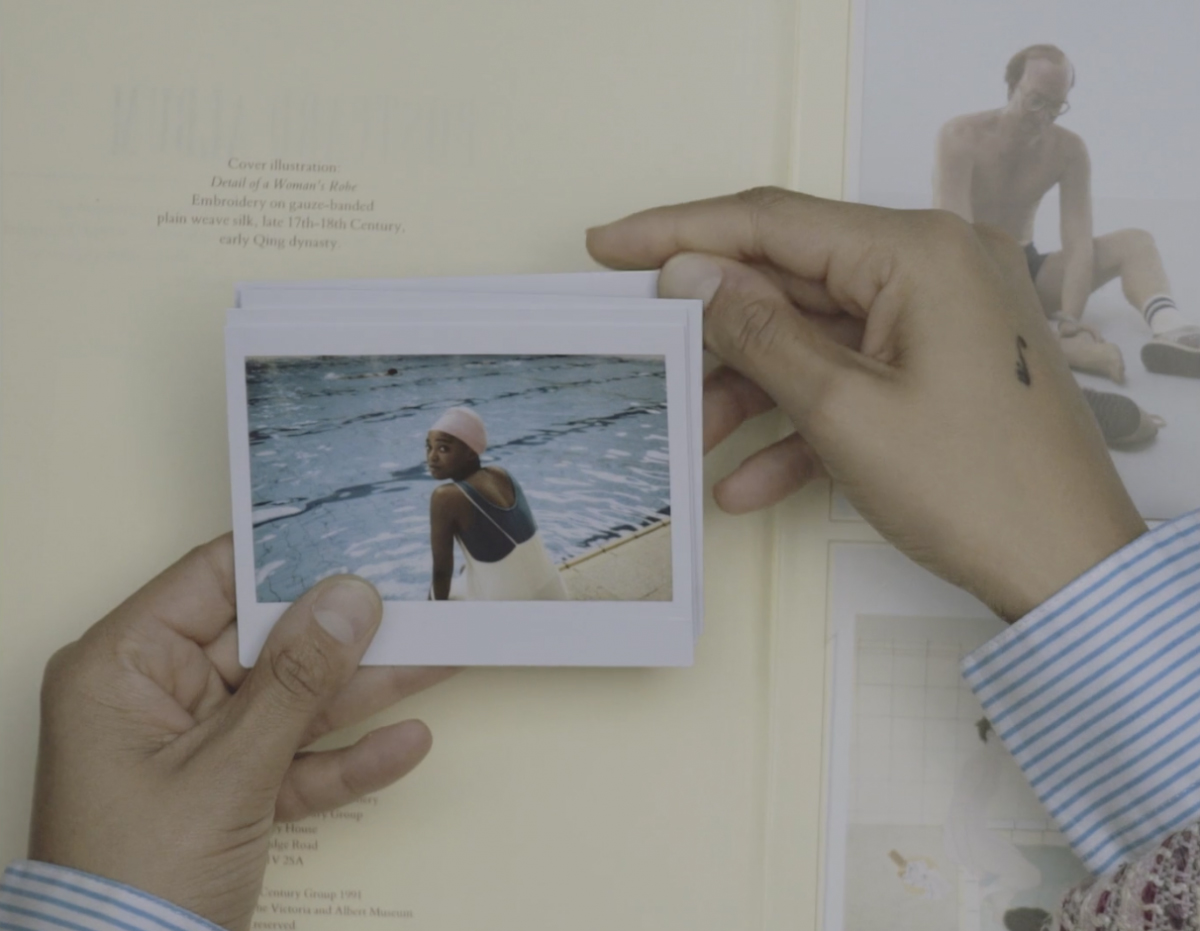
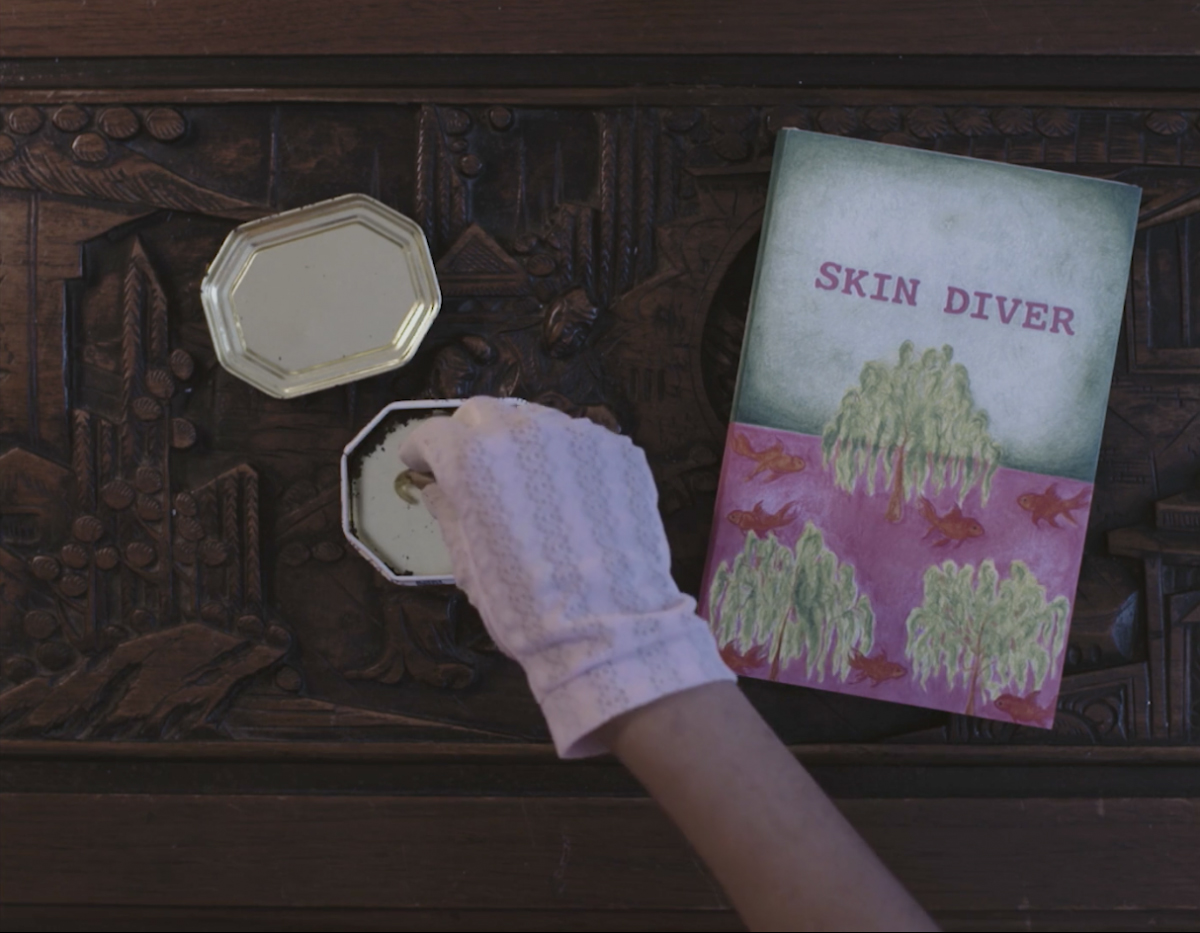

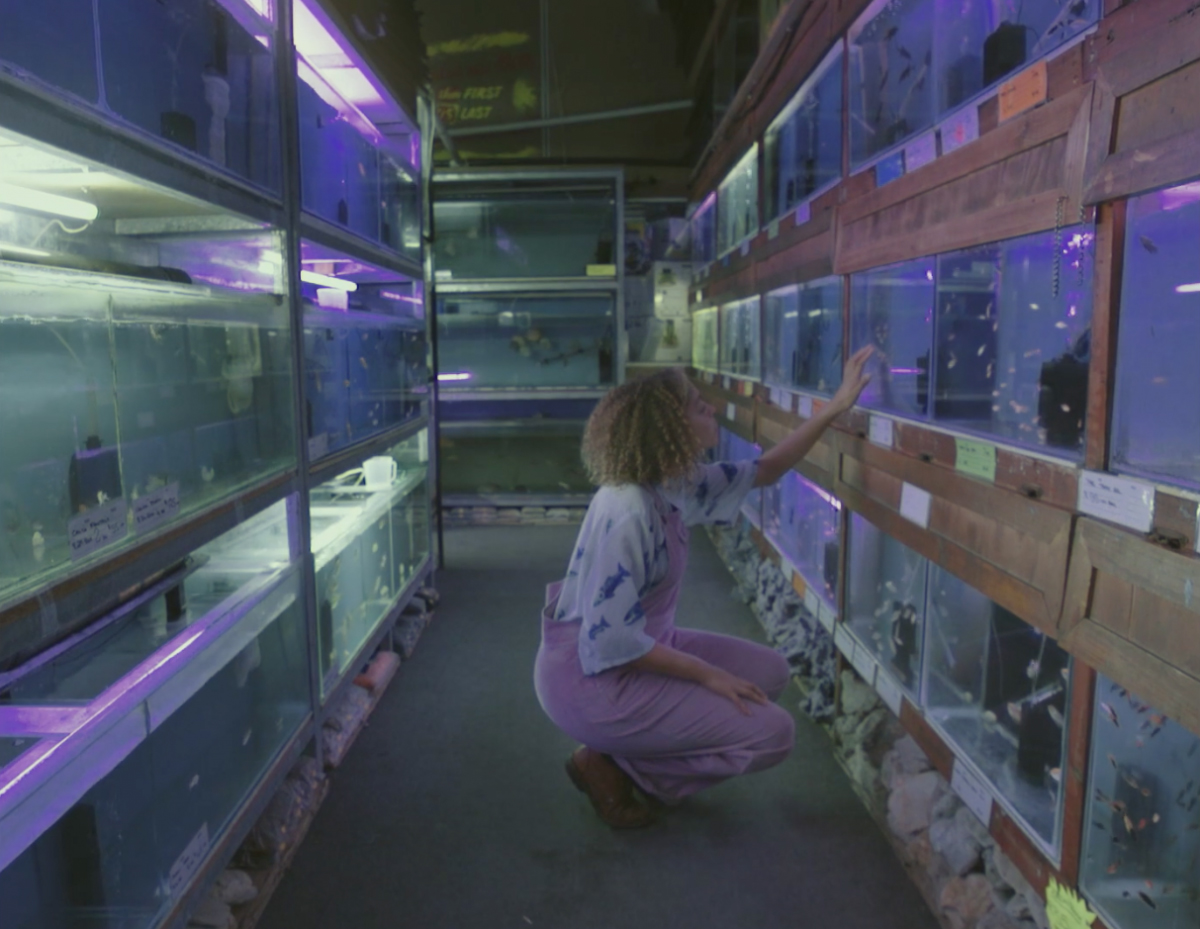
What inspired Skin Diver’s narrative?
Skin Diver is an ode to the tender-hearted, those who feel deeply and sincerely and are sometimes made to feel like that strength is a weakness. I hoped to create something that could connect straight to the heart of those who relate to it, without having to use too many spoken words.
Tell us about the process in bringing this story to life? Any challenges or lessons you’d like to share? What were some of your personal highlights?
It was a challenge to overcome the feeling that you are a “Lone Ranger” when you don’t have a huge team behind you and you’re having to make everything happen, sometimes for the first time. But as much as that was a challenge, it was also one of the bestparts of the process because it taught me how to nurture resilience and perseverance and most of all how to quickly apply a creative solution to what initially presents itself as an obstacle. I am so grateful for all the challenges that the process brought because they grew us all to new levels.
I learnt so many lessons. One of many that I would like to share is specifically aimed at female filmmakers and artists in general. I feel it’s really important that women creators keep fighting the good fight and surround themselves with people who believe in their visions, instead of waiting for someone to validate their ideas and capabilities. I was fortunate to be surrounded by people who never questioned my abilities because of my gender and at the same time encouraged me to push through the barriers that quite definitely exist, even if it’s just the mental/emotional ones which can be the toughest sometimes.
Run us through the reasons for your casting.
Tony and Demi were the first and only women I saw when writing these characters. The fact that they both ended up coming on board without hesitation was a blessing I will never take for granted. It was the same with Thami, she was exactly the girl I saw in my head while writing.
I definitely wanted to create a piece that takes representation into account. I simply created the characters I know exist and wanted to see represented in films. It’s important for young boys and girls of colour to experience characters that are maybe more relatable than the hegemonic white narrative that has dominated mainstream cinema for so long. Having said that, there are signs emerging of the systematic changes that are starting to take place. I am excited and motivated to contribute to this shift. It’s crucial that we do not fall under the illusion that things are changing just because important films are being made, but that it goes as far as impacting both our personal lives, thoughts and meaningful conversations, daily actions as well as macro political structural reformation.
The film has quite a distinctive aesthetic. Tell us about your inspiration.
I would avoid confining what inspires the aesthetics of the film. I really just created the things I wished existed and attempted to bring the world I saw in my head to life. Wes Anderson and Terrance Malick were too obvious stylistic influences as well as the tonality of directors such as Sofia Coppola and Andrea Arnold, whose work I adore.

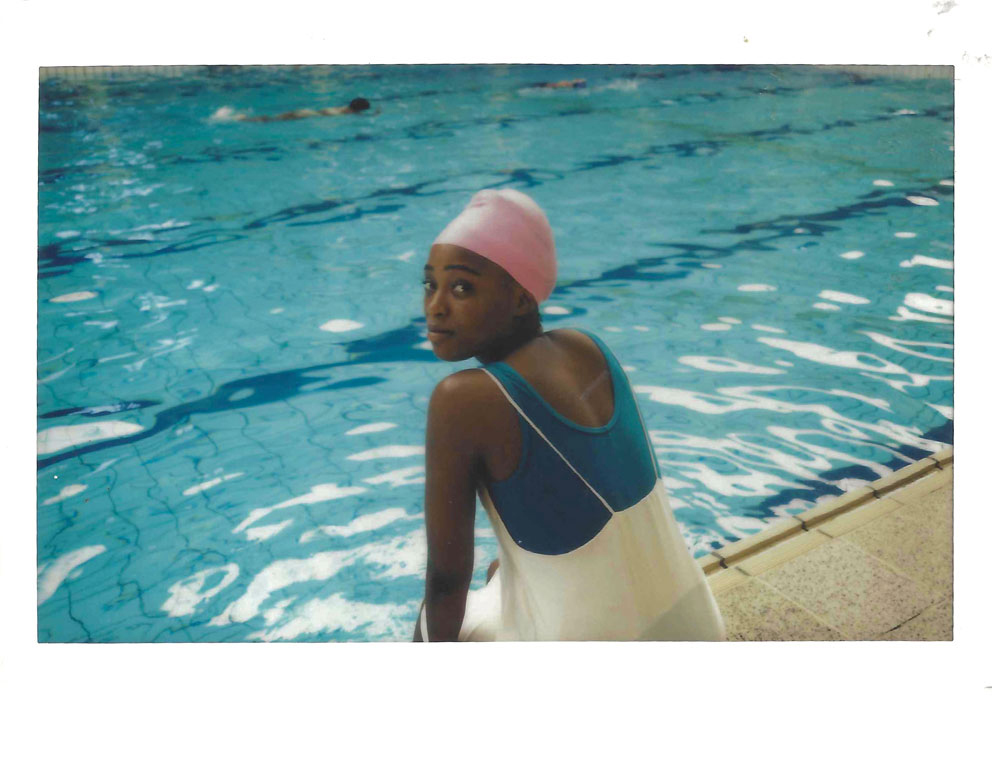
Praise for Skin Diver is often accompanied by mention of your age and sex. How do you feel about this?
I don’t have a problem with that because they are facts. I am young and a female. I am, like others, trying to excel in an industry that has been and continues to be dominated by male ownership and male perspectives. I don’t find any shame or issue with placing emphasis on those two factors, especially if it can prove and motivate others that they don’t need to let their age or gender hold them back.
I do, however, find it unimportant as far as capability goes. I don’t believe that those factors, especially gender, should have to be constantly mentioned in reference to work. I made a film. And I am a female. And if that’s the only thing that makes anyone pay attention to the work then it becomes problematic.
We shouldn’t have to be gender warriors in every waking moment of our lives, having to champion our creations solely because of our gender. I hope (and like to believe) that we shall advance eventually to a point where we won’t have to do that. As it stands, we are not there yet. Until that time comes I don’t have a problem with how people want to appreciate facts. As long as they are not trying to construct a narrative that they are not in a position to project. It’s a complex space that requires sensitivity and consciousness.
So if I had to put my answer in ultra simplistic terms: In principle, age and gender are not important, but in this current time it is very important — particularly in the realm of filmmaking.
Any advice for young people wanting to create something, but don’t know where to start?
Try not to talk about it more than you act on it. Try not to hope for it more than you are willing to work on it. Take it little by little, day by day. Nurture your patience and perseverance and learn how to tune into the softer voice, the whisper that the world around you is most likely trying to silence with doubt.
You are your own greatest obstacle and your own greatest tool. Do not wait for permission. Find the place you feel is best to start from and run with it. You’ll figure it out as you’re doing it, the most important part is to simply to keep doing. Also, form a community of people who inspire you to keep at.
Interview via JAMESON Indie Channel

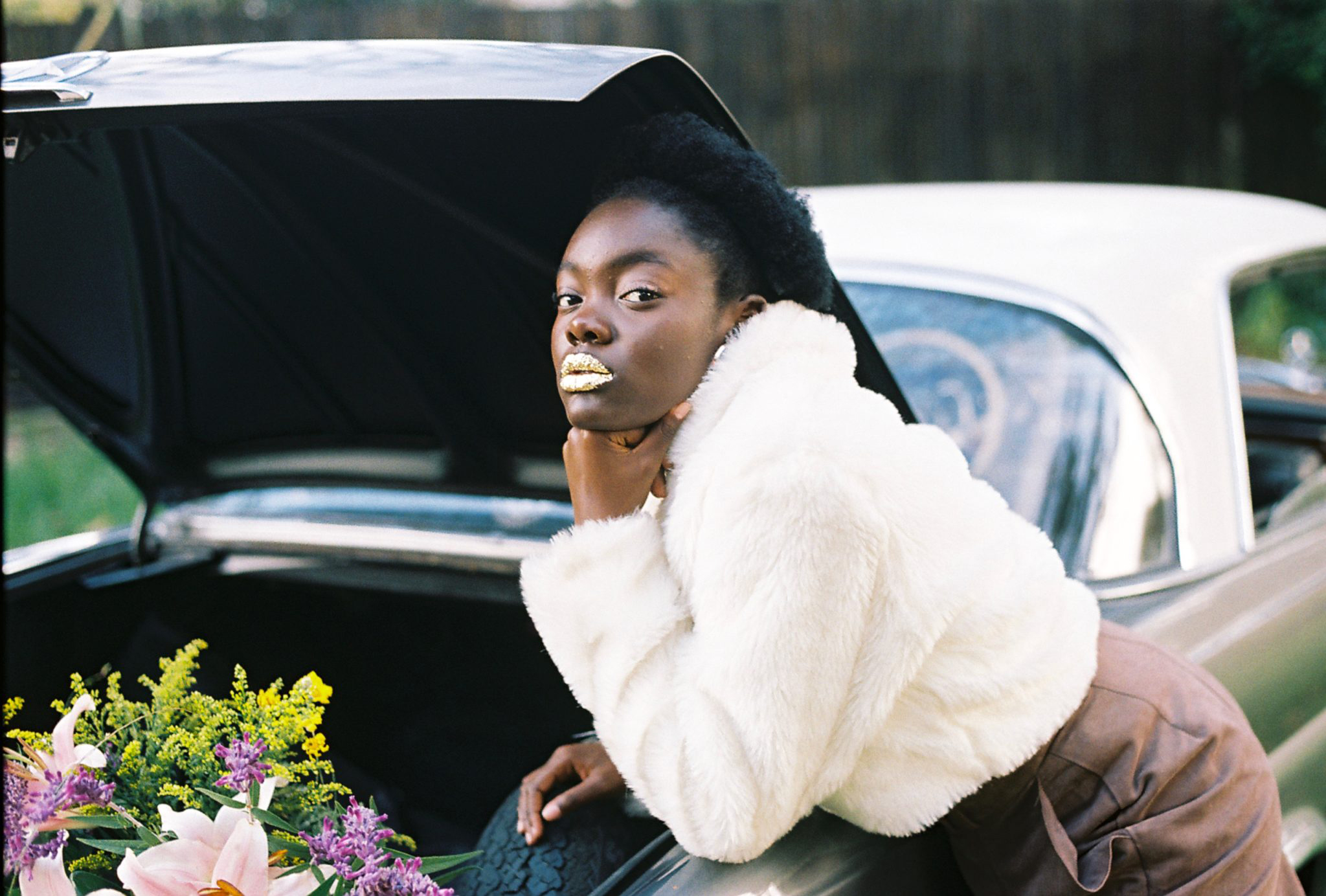
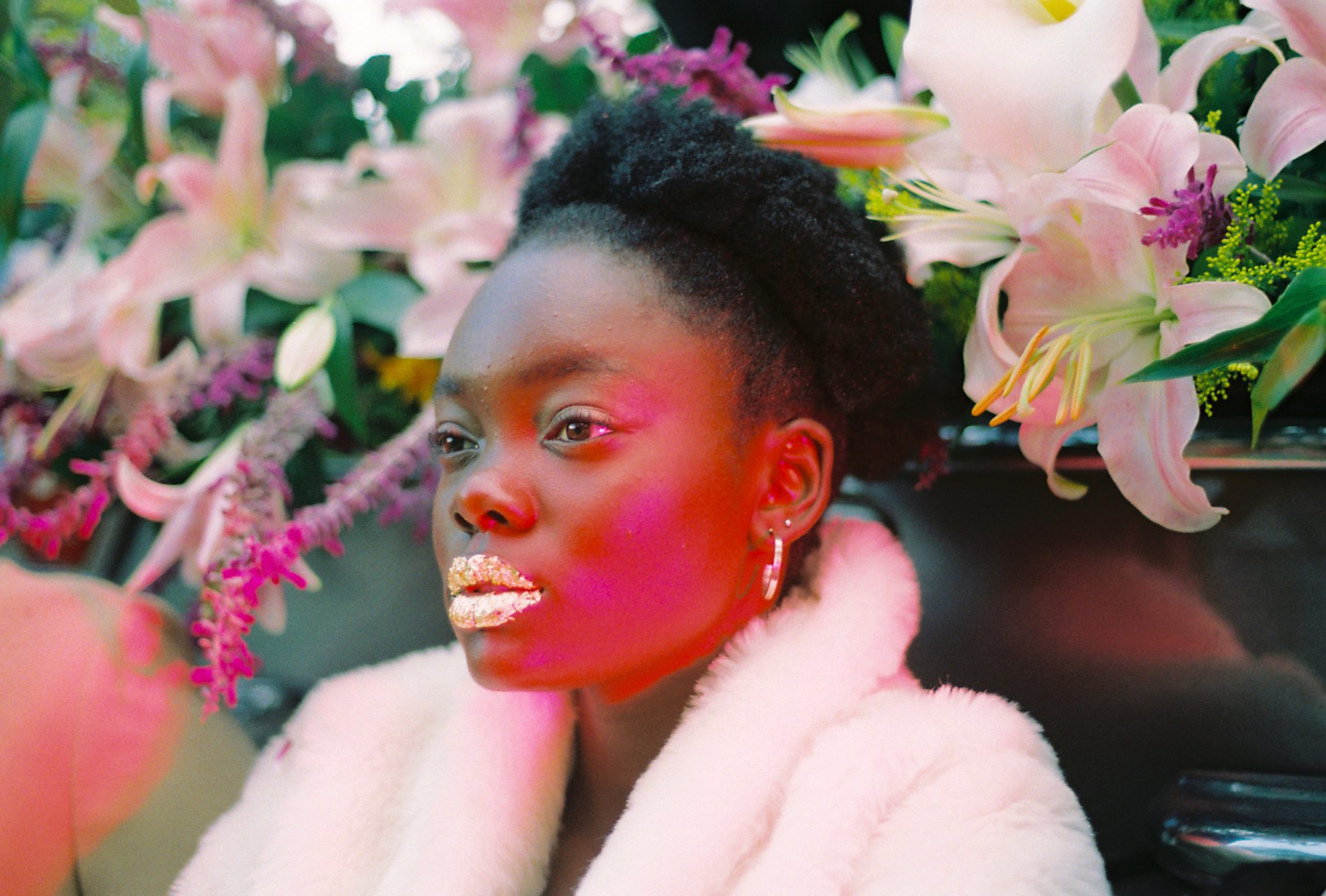
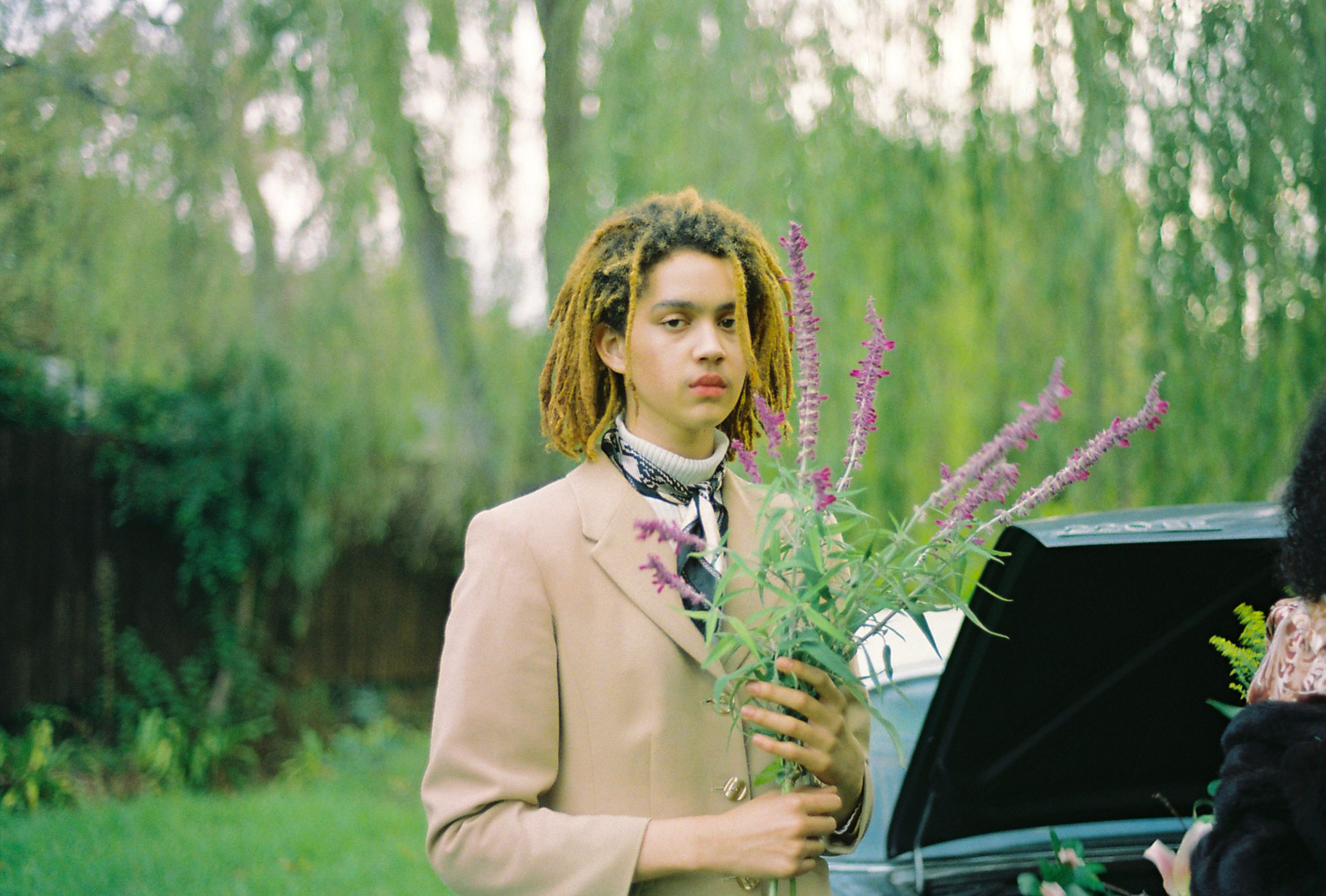
Self-taught film director, photographer and writer Katya Abedian has recently released photo series Internet Friends. Internet Friends is a story about transcending social media’s pitfalls while aspiring to form meaningful, sincere friendships . Candace Redlinghys, one of the models in the series said, “We often associate the internet with ominous feelings. It’s a place we go to get and give information, to buy and sell products but never ever to find meaningful friendships and relationships,” she says. “The title paints a warmer picture of a distant tool responsible for globalisation. It implies that the internet connects us in ways we never thought possible. If, we allow it to.”
Disconnect and self-involvement are often words that are associated with the internet but this doesn’t have to be the case. The internet gives us the opportunity to support another’s vision and in turn build our own. Each person photographed came together thanks to the internet, Instagram specifically, according to Candace Redlinghys. “I can truly call each human in this story a friend. Each one is part of a community I created by genuinely caring for each individual and them reciprocating that care. “How did we become friends? By being generally interested in one another’s lives. By cheering each other on in whichever endeavours we pursued. By seeing the people that follow me as actual human beings and not just numbers.”
Article via Between 10 and 5
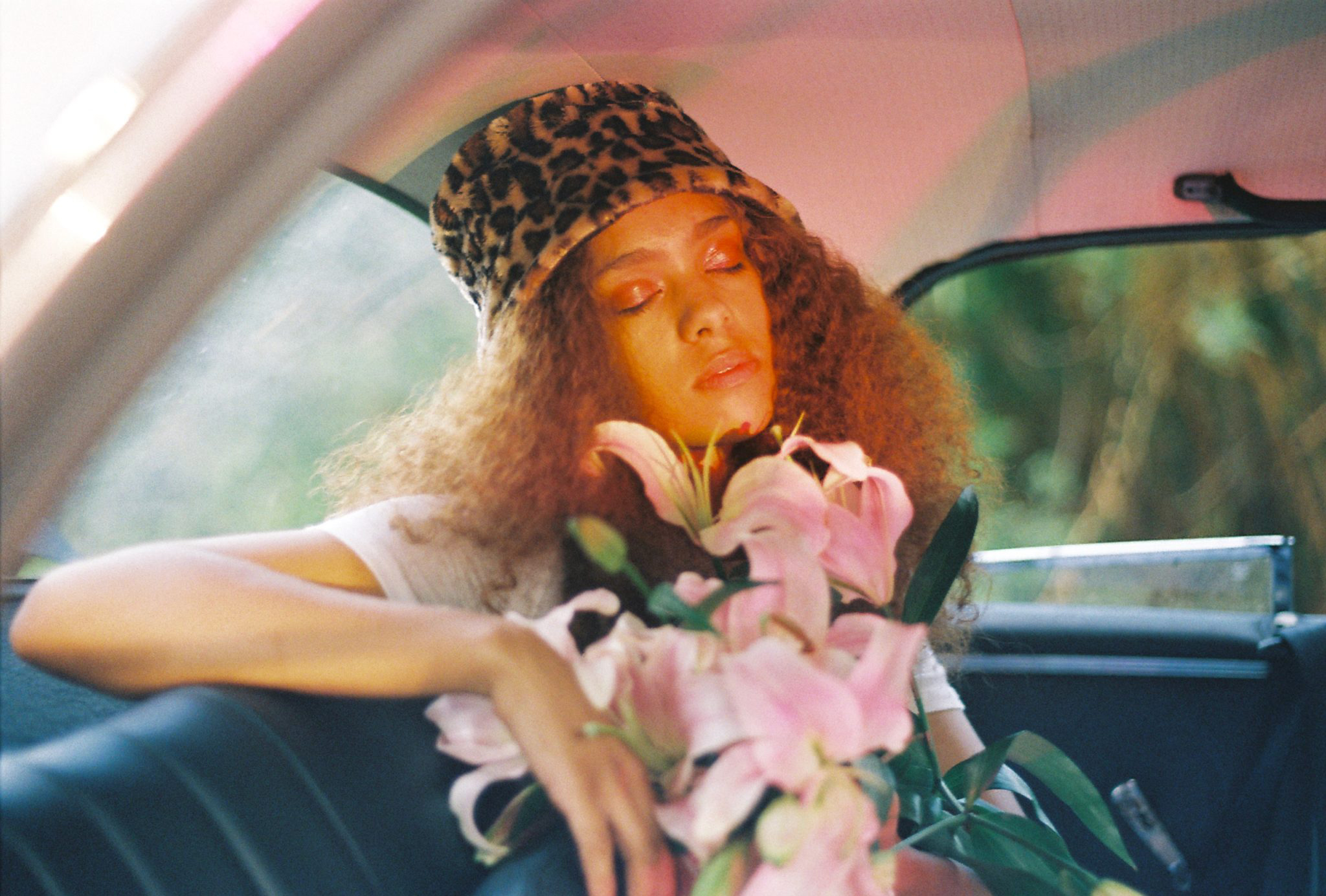
A short film by Katya Abedian about the power of female companionship, universal spirituality and the joys of being different
Katya Abedian’s debut short film Skin Diver is bitter sweet. Following two young women’s blossoming friendship, we are treated to an insight into both their inner and outer worlds, which are filled with love, wonder, daring dreams and loss. Starring Tony Gum as Manzi and Demi Van Der Westhuizen as Saffron, our young heroines create their own reality together based on self-acceptance, true emotions and limitless creativity.
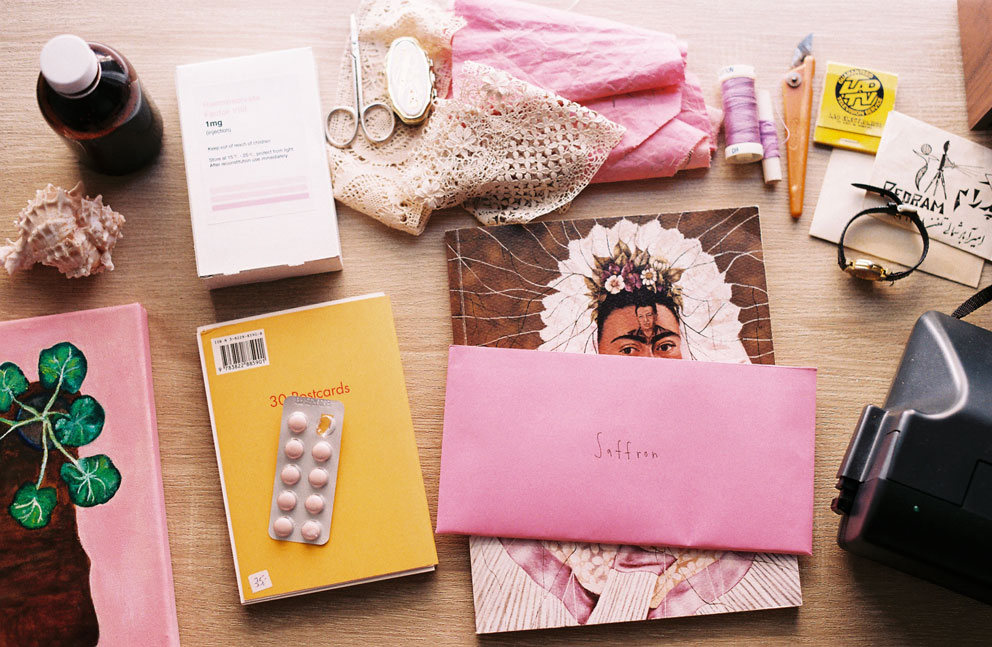
Born in South Africa to an Iranian father and South African mother, Abedian had not finished school before setting her sights on becoming a filmmaker. Now only 19 and still studying, she has brought her dreams to fruition and no doubt this is only the beginning. Skin Diver has previously screened at the Townshend International School in the Czech Republic and in Barcelona, and will receive screenings in Cape Town and Joburg in June before traveling to Barcelona later in the year. Here, Abedian discusses the motivations and processes that went into making the film in her own unique words…
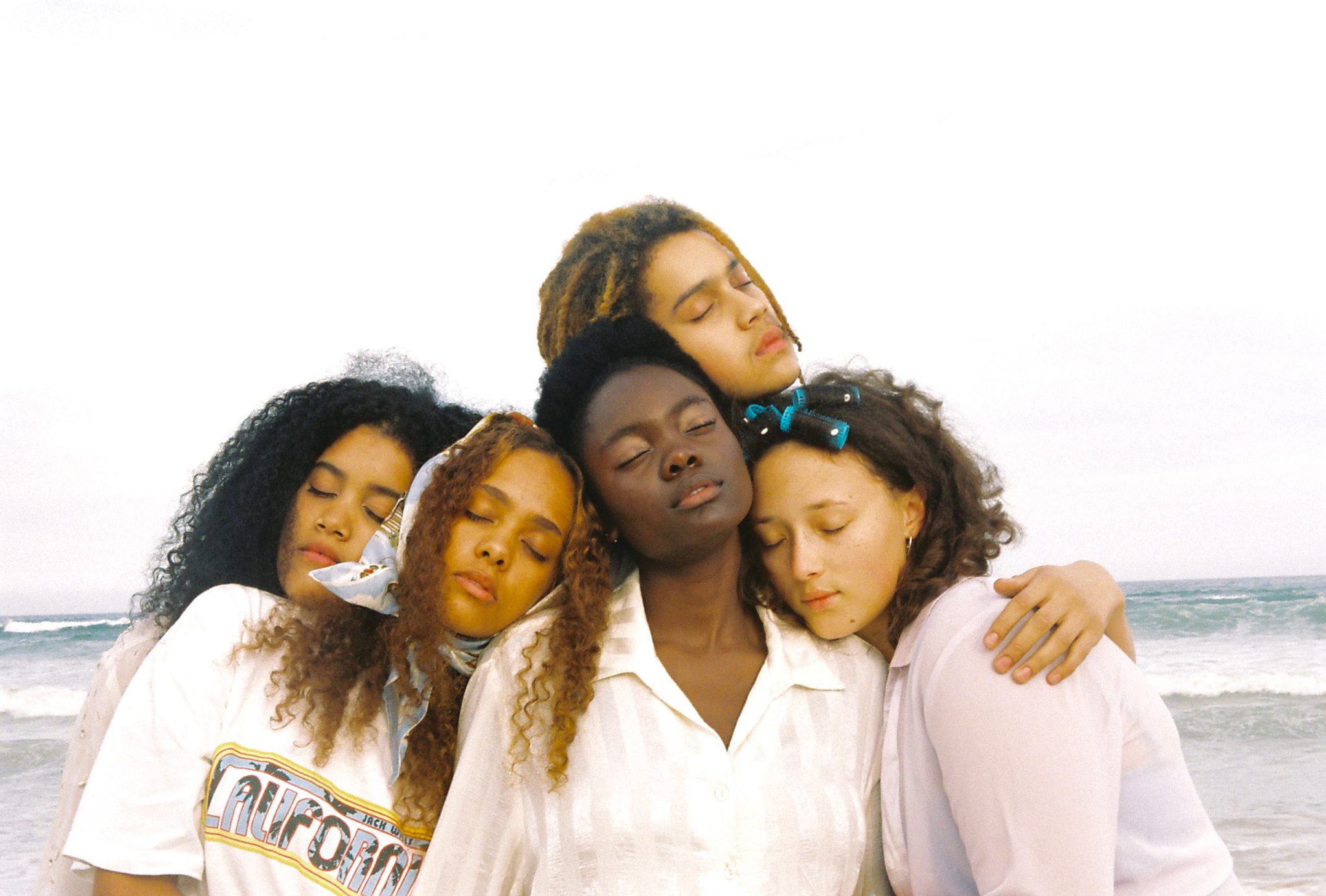
“Skin Diver was inspired by the idea of creating the things you wish existed. Personally, I wanted to see more diverse characters in stories and to prove to young female filmmakers that they have as much a right to have a voice as their male counterparts do. We do not need to be praised for being female filmmakers, we are just artists who make films and also happen to be females. But we do have a responsibility to start pushing for more female perspectives and to acknowledge that we ourselves have been brought up digesting and believing stories told from a dominantly male perspective. This is the gap in pop culture that we need to start closing and filling up with meaningful, tasteful, necessary filmmaking.
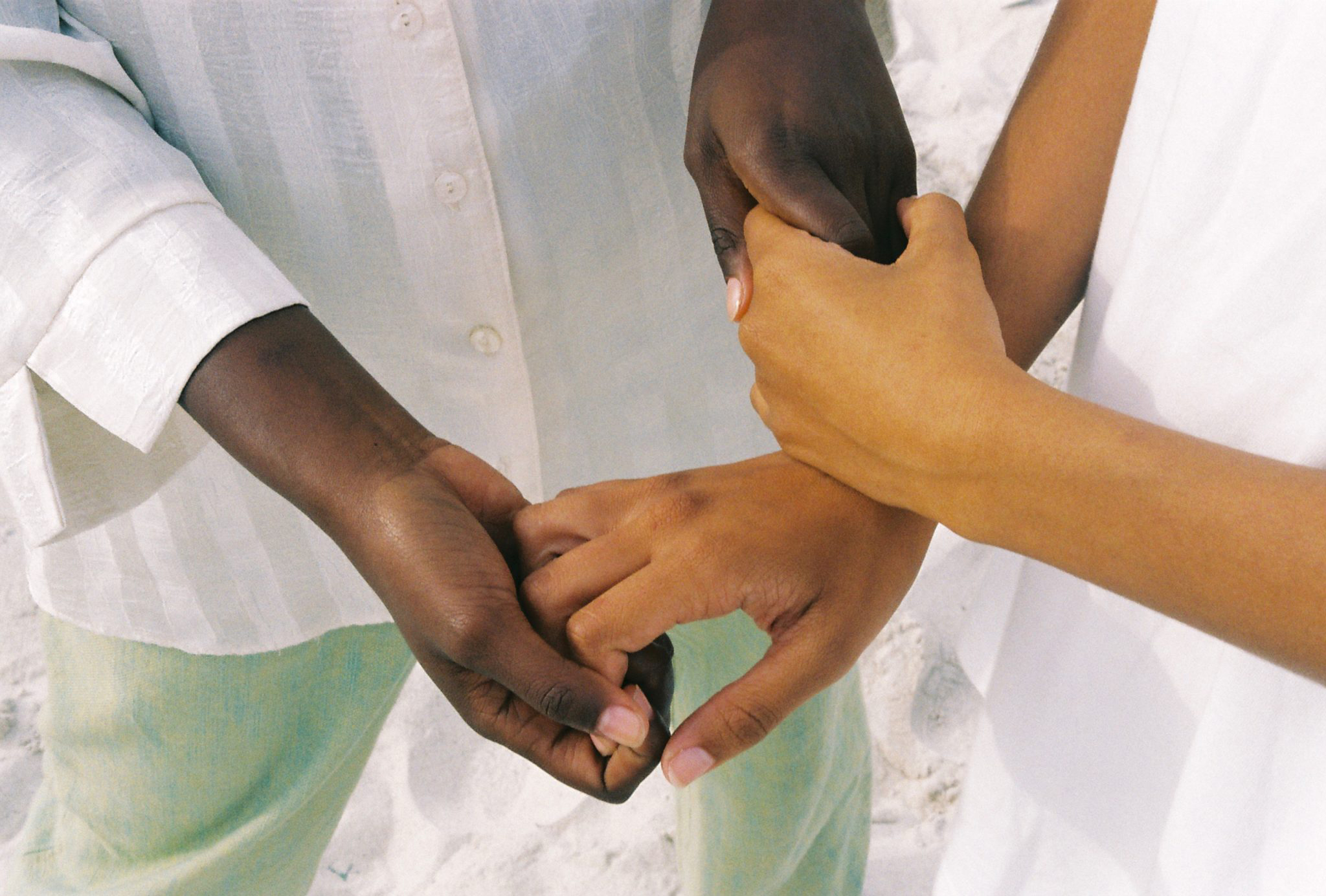
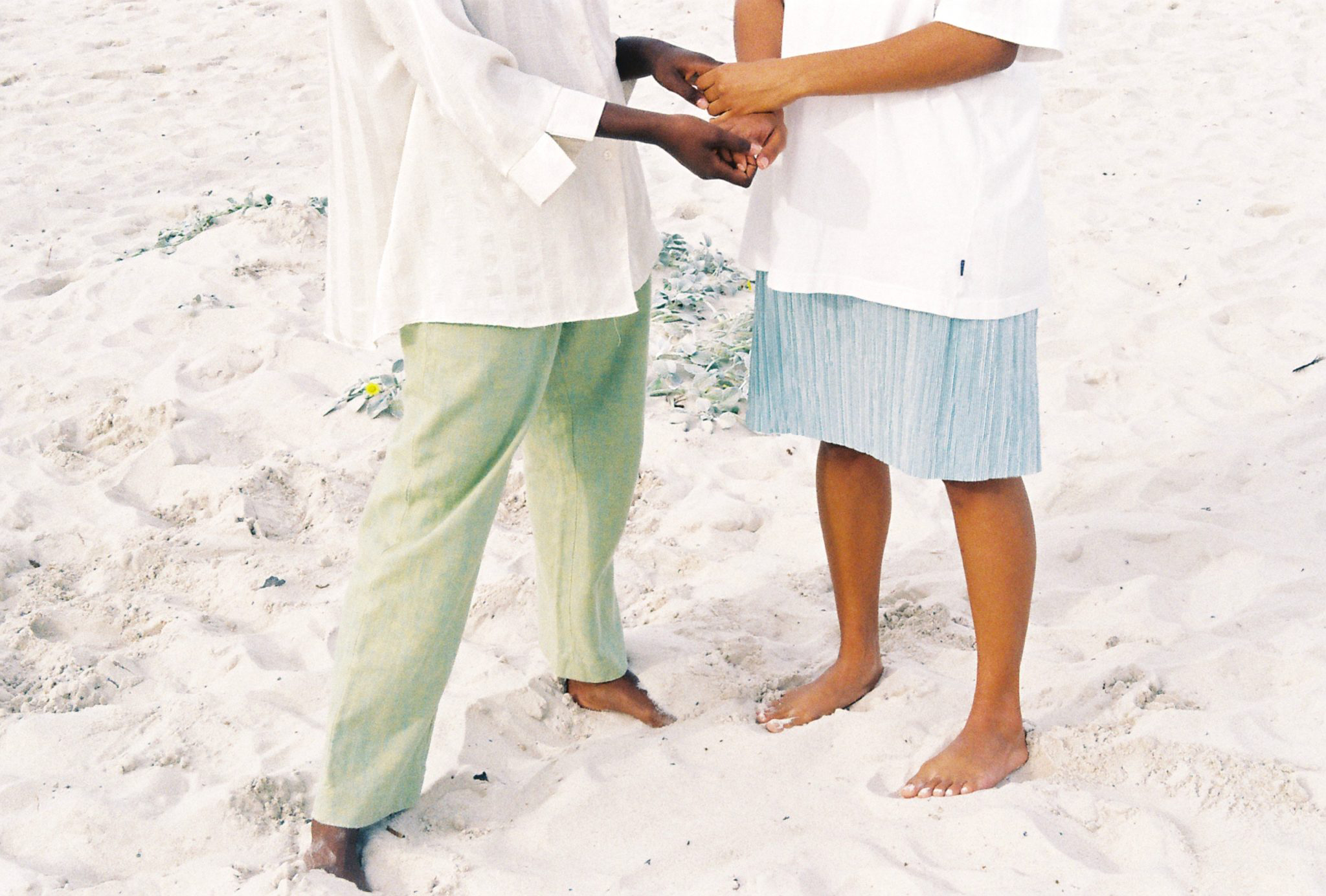
“Throughout the last few years of high school I was collecting pieces of stories, cherry-picking from the ether. Nothing had enough to translate into a narrative for film, at least not yet, but Skin Diver flowed naturally. I had a lot of inspirations building up, which mixed with my desire to actually get down to making my first short film. I went through the motions as intentionally as possible. I wanted to write the best screenplay I could, work with people who are excellent in their own capacities and bring together a team who understood that I was bringing this vision to life for the right reasons. And to my surprise, that is exactly what happened. Everyone I hoped to work with jumped on board. It was unfathomable and the most humbling thing.
“With Demi, I drove to her house, sat on her floor and told her I had her in mind for this role and wouldn’t be satisfied if anyone else stepped into it. She gave me permission to paint the picture I had in my imagination in the air and I remember feeling like there was this peacefulness and certainty about it. With Tony, we met up in a little bookstore. She asked, I answered, she was drawn to what the story stood to represent, much like Demi.
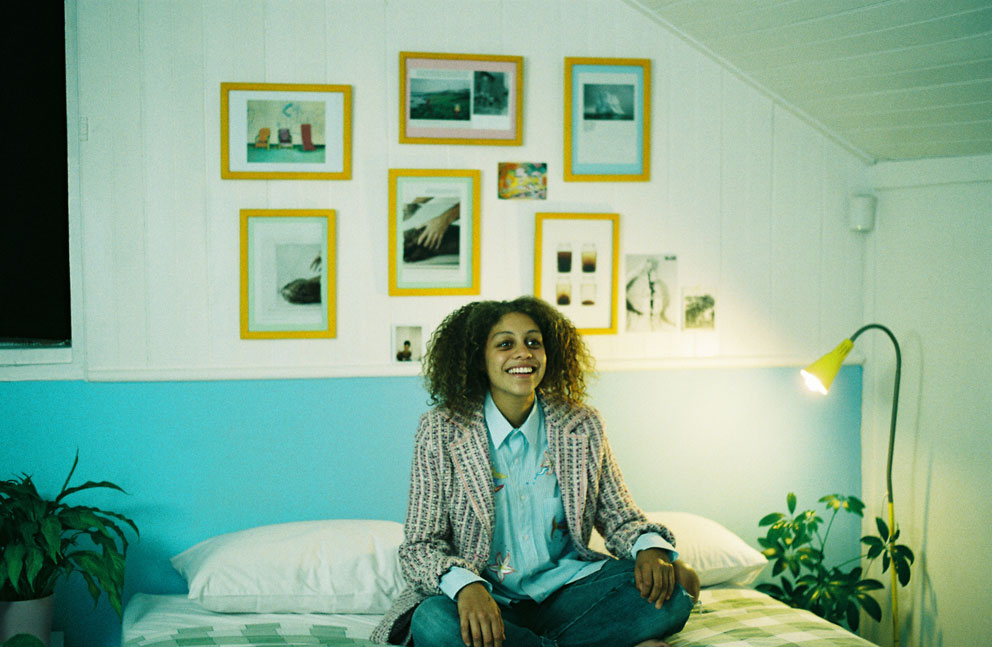
“I made Skin Diver for the tender hearted, for kids or anyone in the world that has felt a little on the outside”
“It was the same with the other key members of the team. I experienced for the first time how an idea starts off with just you thinking maybe you’re the only person who feels this way, and then it becomes that way for someone else, and eventually it’s a collective endeavour. There is nothing more affirming as a director than when the people you’re working with believe in the work as much as you do, and they start becoming meaningfully critical and concerned about taking it to the best place it can be raised to. That for me is the essence of what it means to be the vision-holder of a team, to let others form their own connection to what you’re collectively working on.
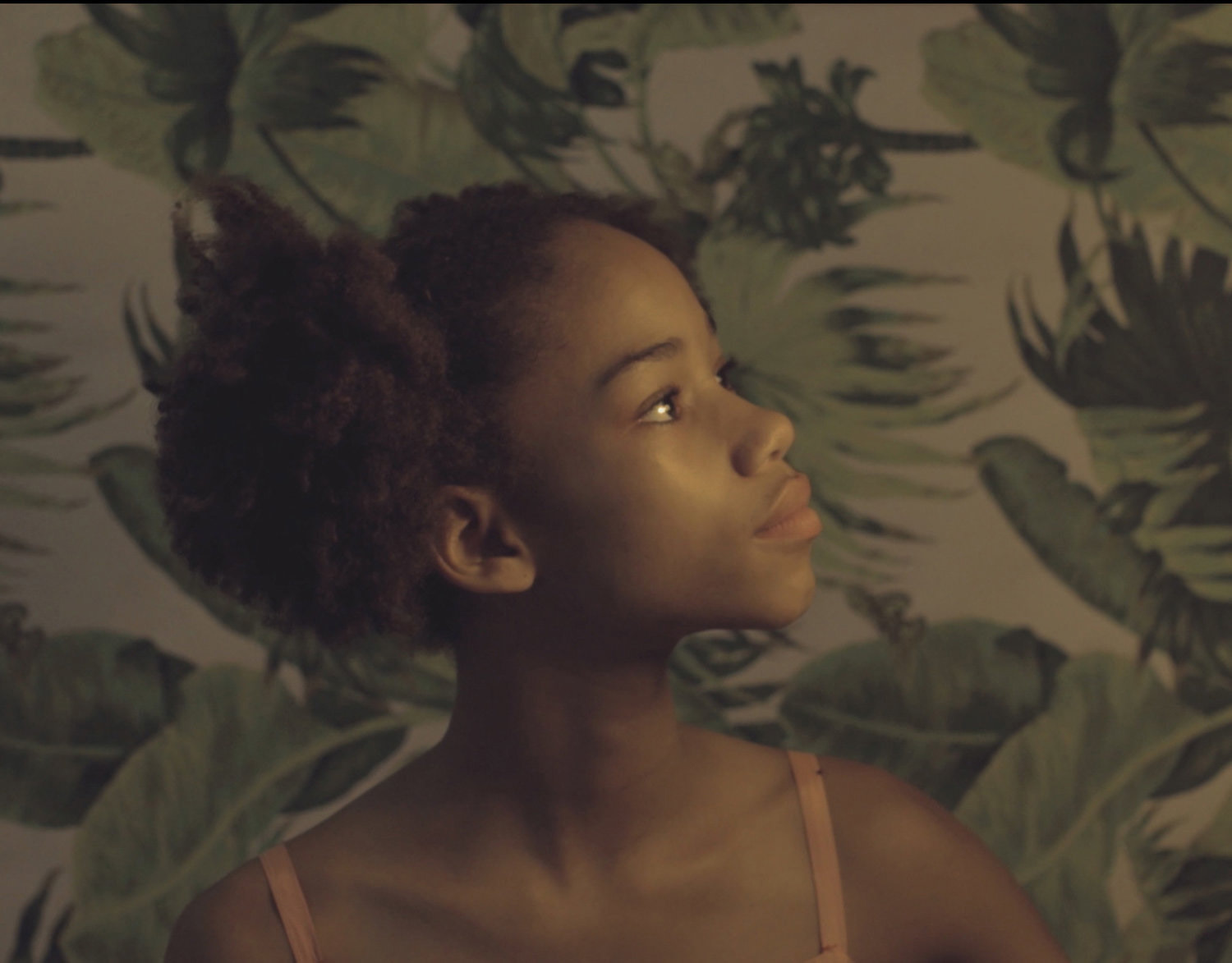
“As far as the story goes, I don’t want to prescribe what or how audiences should feel about it. What I can say is that I made it for the tender hearted, for kids or anyone in the world that has felt a little on the outside. I want to communicate the idea that we are ultimately creating our own realities to exist in and we shouldn’t be ashamed of them. We should pay attention to what we are building and stay woke, but it’s okay if others don’t always understand why you do what you do, or don’t do. You exist to be true to your nobility and your authentic self, and to help others do the same while you’re figuring it out too. At least that is my understanding, which is strongly inspired by the Bahá’í faith and it’s emphasis on service to humanity and the need for unity in diversity.
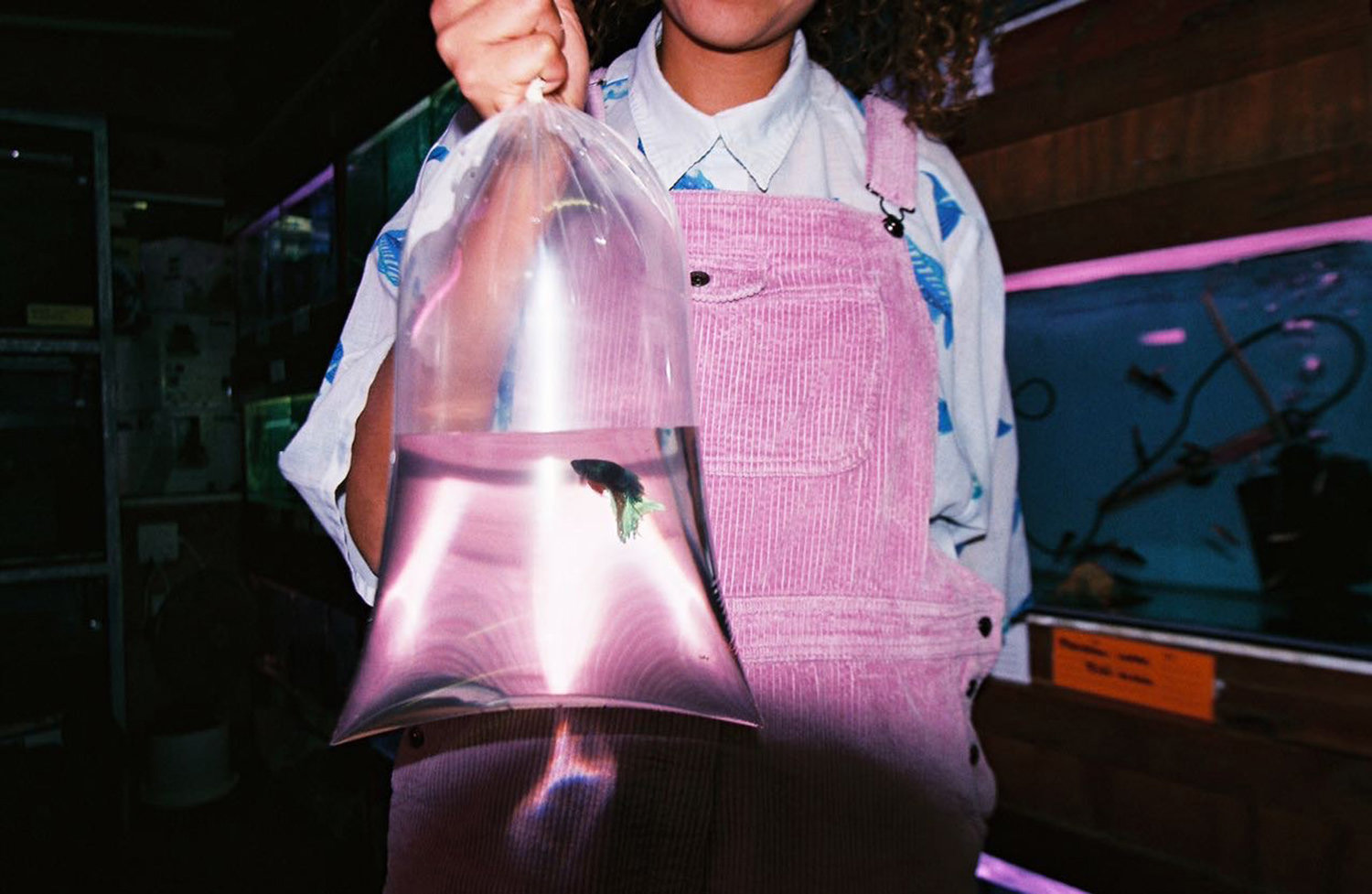
“The more we embrace and start investigating our individuality, the things that makes us ‘weird’ to others, the closer I believe we will get to finding out how we can contribute originally to society. We all have a unique contribution to make and that is what Skin Diver aims to stand for. I remember writing this note that said ‘There is something in this world that only you can do’ and to me it wasn’t about ego or superiority but the fact that God endows each of us with unique capacities that we can combine together and use to do something meaningful in our short lives here. And if we are always trying to follow the stream we miss out on identifying, grappling with and exploring those exciting possibilities. Only dead fish follow the stream…”
Article via NATAAL
Katya Abedian is an African-Persian self-taught film director, photographer and writer. She was born and raised in South Africa and her love for the African continent runs deep. Katya aspires to create artwork that advocates the unification and oneness of mankind. She firmly believes that humanity needs more female story-tellers in the forefront of the industry and hopes to use film as a means of social metamorphosis. She intends to study Medicine and Surgery while advancing her repertoire and artistic fingerprint as a filmmaker.
